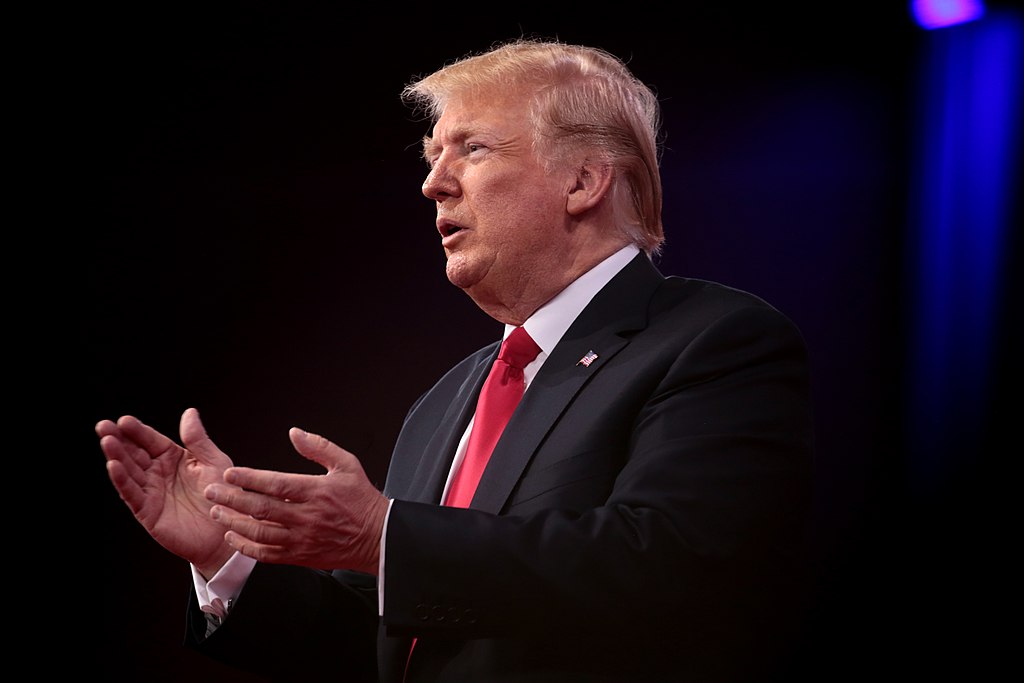The United States government faces a potential shutdown during the holiday season as President-elect Donald Trump and Elon Musk, his incoming "efficiency czar," derailed a critical funding bill. Their intervention has thrown Congress into turmoil, jeopardizing federal operations just days before Christmas.
Musk and Trump’s Opposition Sparks Crisis
Congress had been poised to pass a continuing resolution (CR) to extend government funding past Friday night, ensuring essential services remain operational. However, Musk, using his massive platform on X (formerly Twitter), criticized the bill, calling it a "pork-laden mess" and questioning its transparency. His posts, some of which included misleading claims, ignited backlash among fiscal conservatives.
Twelve hours later, Trump and Vice President-elect J.D. Vance joined Musk in condemning the bill. They issued a statement demanding the inclusion of a debt ceiling increase—a contentious issue that typically requires weeks of negotiation. This sudden demand has stalled progress, with federal agencies now preparing for a shutdown at midnight Saturday.
Impact on Federal Workers and Services
If Congress fails to pass a funding bill, the government will partially shut down, leaving hundreds of thousands of federal employees furloughed or working without pay during the holiday season. National parks, museums, and other public services would close, while critical operations like military defense and law enforcement would continue but face resource constraints.
Speaker Mike Johnson (R-La.) has pledged to introduce a pared-down funding bill that addresses debt concerns and trims unnecessary spending. However, with Democrats controlling the Senate, bipartisan support remains unlikely. House Minority Leader Hakeem Jeffries (D-N.Y.) dismissed Republican attempts to renegotiate, emphasizing the bipartisan agreement already reached.
Partisan Disarray and Economic Concerns
The CR debacle has exposed deep fractures within the Republican Party. Johnson has been criticized for misjudging his party’s tolerance for spending and for failing to anticipate Musk and Trump’s opposition. The fallout raises questions about Musk’s influence as a private citizen and his ability to disrupt legislative proceedings.
Democrats argue the chaos offers a glimpse into the challenges of Trump’s second term, particularly with Musk wielding significant sway in policy discussions. Prominent Trump critic and conservative lawyer George Conway quipped, "It’s weird to think Elon Musk paid far less for the U.S. government than for Twitter."
The stalled bill also jeopardizes $100 billion in disaster relief for hurricane victims and $30 billion in aid for farmers. These funds are urgently needed but may become collateral damage in the political standoff.
Public Reaction on Social Media
The showdown has sparked heated debate online. Twitter user @PatriotGuard commented, "Musk and Trump are saving taxpayers from reckless spending. This bill was doomed from the start." Meanwhile, @CivilRightsAdvocate expressed concern: "Furloughing workers over Christmas is cruel and unnecessary."
User @BudgetHawk added, "Congress must stop passing bloated bills and prioritize fiscal responsibility." In contrast, @PolicyWatchdog tweeted, "Trump’s debt limit demand is a distraction from the real issue: disaster and farm aid delays."
Others like @VoterConcern warned, "The shutdown would harm vulnerable communities, all for political grandstanding." Finally, @BalancedBudgetNow shared, "This is why we need leaders focused on solutions, not social media theatrics."
Conclusion
With federal workers and critical services at risk, Congress faces mounting pressure to resolve the funding deadlock. However, Trump and Musk’s intervention has further complicated negotiations, leaving little hope for a swift resolution. As the shutdown deadline looms, the standoff highlights the complexities of balancing fiscal responsibility with governance.



 South Korea Assures U.S. on Trade Deal Commitments Amid Tariff Concerns
South Korea Assures U.S. on Trade Deal Commitments Amid Tariff Concerns  U.S. to Begin Paying UN Dues as Financial Crisis Spurs Push for Reforms
U.S. to Begin Paying UN Dues as Financial Crisis Spurs Push for Reforms  Trump Allows Commercial Fishing in Protected New England Waters
Trump Allows Commercial Fishing in Protected New England Waters  TrumpRx Website Launches to Offer Discounted Prescription Drugs for Cash-Paying Americans
TrumpRx Website Launches to Offer Discounted Prescription Drugs for Cash-Paying Americans  Trump Endorses Japan’s Sanae Takaichi Ahead of Crucial Election Amid Market and China Tensions
Trump Endorses Japan’s Sanae Takaichi Ahead of Crucial Election Amid Market and China Tensions  Iran–U.S. Nuclear Talks in Oman Face Major Hurdles Amid Rising Regional Tensions
Iran–U.S. Nuclear Talks in Oman Face Major Hurdles Amid Rising Regional Tensions  U.S. Lawmakers to Review Unredacted Jeffrey Epstein DOJ Files Starting Monday
U.S. Lawmakers to Review Unredacted Jeffrey Epstein DOJ Files Starting Monday  Trump’s Inflation Claims Clash With Voters’ Cost-of-Living Reality
Trump’s Inflation Claims Clash With Voters’ Cost-of-Living Reality  Nighttime Shelling Causes Serious Damage in Russia’s Belgorod Region Near Ukraine Border
Nighttime Shelling Causes Serious Damage in Russia’s Belgorod Region Near Ukraine Border  U.S.-India Trade Framework Signals Major Shift in Tariffs, Energy, and Supply Chains
U.S.-India Trade Framework Signals Major Shift in Tariffs, Energy, and Supply Chains  China Warns US Arms Sales to Taiwan Could Disrupt Trump’s Planned Visit
China Warns US Arms Sales to Taiwan Could Disrupt Trump’s Planned Visit  Trump Lifts 25% Tariff on Indian Goods in Strategic U.S.–India Trade and Energy Deal
Trump Lifts 25% Tariff on Indian Goods in Strategic U.S.–India Trade and Energy Deal  US Pushes Ukraine-Russia Peace Talks Before Summer Amid Escalating Attacks
US Pushes Ukraine-Russia Peace Talks Before Summer Amid Escalating Attacks  Missouri Judge Dismisses Lawsuit Challenging Starbucks’ Diversity and Inclusion Policies
Missouri Judge Dismisses Lawsuit Challenging Starbucks’ Diversity and Inclusion Policies  India–U.S. Interim Trade Pact Cuts Auto Tariffs but Leaves Tesla Out
India–U.S. Interim Trade Pact Cuts Auto Tariffs but Leaves Tesla Out  Federal Judge Restores Funding for Gateway Rail Tunnel Project
Federal Judge Restores Funding for Gateway Rail Tunnel Project  Netanyahu to Meet Trump in Washington as Iran Nuclear Talks Intensify
Netanyahu to Meet Trump in Washington as Iran Nuclear Talks Intensify 































